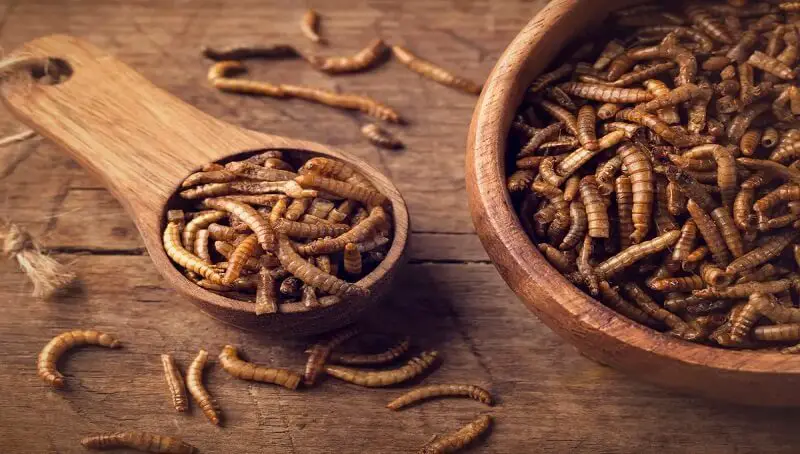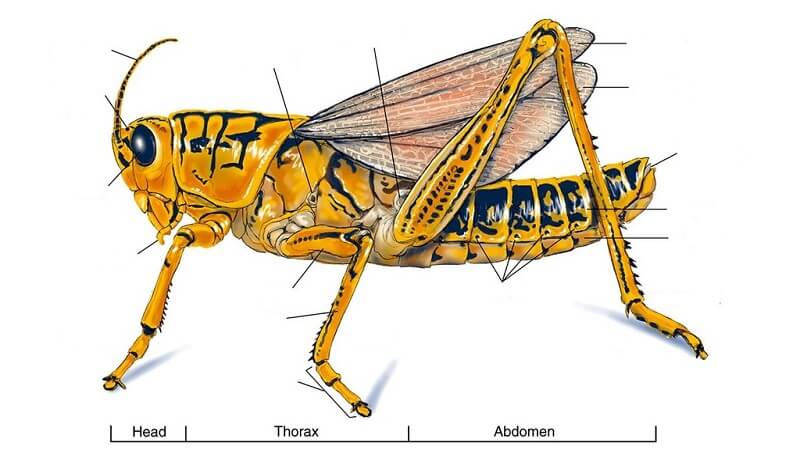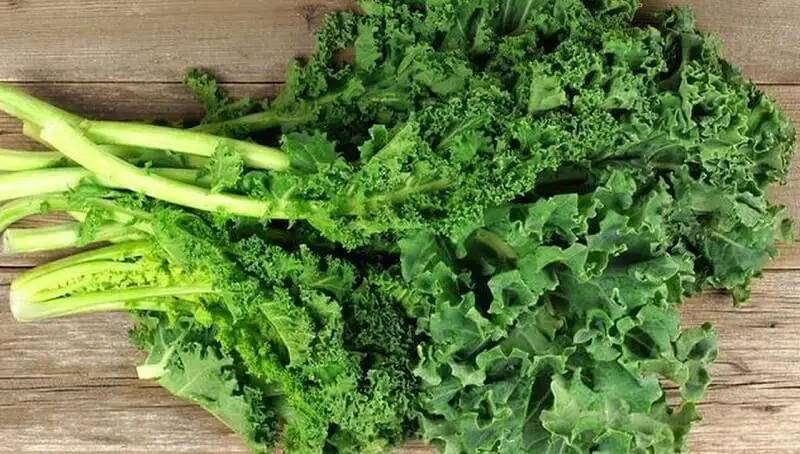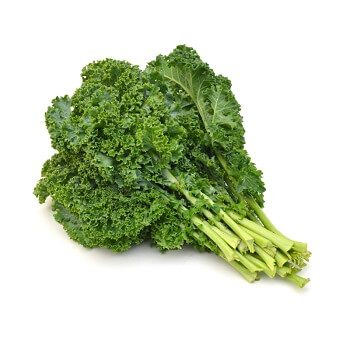
What Do Mealworms Turn into? – A Mealworm’s Life-Cycle
March 27, 2022
Detailed Cricket Anatomy – Guide & Diagram of Its Body Parts
March 27, 2022
Kale is a leafy, dark-green vegetable, that will provide a multitude of nutrients when ingested. Arugula is part of the same family as Kale. You will find anything from antioxidants, iron, calcium, fibers, and even some vitamins in Kale.
Goats can make use of any of these nutrients for healthy development and can get them safely from Kale.
So, can goats eat kale?
Goats can eat kale safely if they eat it in moderation. Although Kale will provide a big part of the necessary nutrients that a goat needs, when consumed in excessive amounts, these raw cruciferous vegetables can release goitrogens, known to be toxic to animals. These toxins can affect thyroid function, which can lead to other health issues as well. This is why you should only feed your goat with a low to moderate amount of kale each meal.
You might also like my articles on whether goats can eat mango, bamboo, or strawberries.
Keep in mind that kale is very nutritious and goats will really like it, so don’t eliminate it completely from their diet. Along with kale, arugula, brussels sprouts, and collard greens are also vegetables from the same cruciferous family. They really like it in both gardens and small pots and are really easy to grow.
This is why these plans are usually pretty easy to find if you want to add them to your goat’s diet. This is both a good thing and a bad thing. You can easily add them to the pet’s diet, but as a goat owner, you should be really careful how much of each of these plants you will actually add to each meal.
With all of the health benefits that Kale brings to the table, it also brings the nasty goitrogens that can cause iodine deficiency when ingested in excess.
Generally speaking, goats have a strong stomach and can digest and tolerate most of the vegetables and their toxins, but when faced with high amounts of toxins, they might have a harder time eliminating them.
Can goats eat arugula?
Goats can eat arugula kale with no issues as long as they only eat a moderate amount per sitting. Arugula is also rich in micronutrients like antioxidants, minerals, and vitamins, and is considered a low oxalate green. It will boost the pet’s immune system and help with its digestive system at the same time.
Arugula is also a very popular leafy green vegetable that features a slightly bitter, peppery taste. It is usually used in pizza and pasta recipes, but also in salads and other well-known dishes. Arugula is a great ingredient to add to your goats’ diet because it is very easy to digest and comes with a high amount of nutrients.
What makes kale poisonous to goats?
Kale becomes poisonous to goats only when given in very high amounts. When goats eat excessive amounts of kale, you might notice that their urine becomes red. This happens because the excess amounts of toxins will actually affect the red blood cells of the animals. Goats should also eat only moderate amounts of kale to reduce the risk of developing any thyroid function issues.
Although small amounts of Kale are considered a nutritious wonder, every hundred grams of kale features around 17 milligrams of oxalate, which is a considerable amount. Goats can develop kidney stones if they consume too many oxalates regularly.
Oxalates aren’t an immediate danger to goats when they eat kale. Remember that they need an excess of kale to be in any kind of danger.
The best way to know if you’re overfeeding your goat with kale is by checking its urine color. You will have to stop giving it kale and shift its diet towards forage like hay or grass for a while if you notice the goat has reddish-colored urine.
Kale isn’t the only vegetable to have oxalates and trigger a release of goitrogens. Apart from kale, most other cruciferous vegetables will feature the same problems. Among them the most popular are:
- Watercress
- Radishes
- Collards
- Bok choy
- Brussels sprouts
- Arugula
- Cabbage
- Cauliflower
- Broccoli
Kale can also have a considerable amount of metals like arsenic, cadmium, thallium, and cesium. You shouldn’t expect all kale to come with these metals and will usually depend on the soil in which it grows.
Can goats eat ornamental kale?
Goats can also eat ornamental scale with no issues as long as the quantities are also kept within moderate levels. Although ornamental kale features the same nutrients as kale, it will usually be less flavorful for goats, but also less safe even in moderate amounts. The part that you should really try to avoid feeding your goat with is the root of the ornamental kale because it is really toxic.
Ornamental kale isn’t all that different from green kale that you know and have probably eaten before. The only difference is that the ornamental kale is more colorful and was hybridized to look more like a flower.
Its leaves are either pink, purple, or white and it is usually grown as an ornamental piece in gardens. Goats will usually avoid it because it isn’t as flavorful as the green one, even though it is just as nutritious.
If your goat seems to like this vegetable, you can allow it to have some, just remember to not give it too much, to avoid any negative effects on its health.
Can goats eat collard greens?
Yes, goats can eat collard greens with no side effects on their health. These vegetables are a good source of iron, calcium, vitamins C, and other minerals, and at the same time, they are very easy to coth chew and digest.
Kale and its nutritional benefits for goats
 There is a reason why people call Kale natural medicine. This is because, if you don’t add it in excess to the diet of your goat, it will feature some really amazing health benefits.
There is a reason why people call Kale natural medicine. This is because, if you don’t add it in excess to the diet of your goat, it will feature some really amazing health benefits.
Among the multitude of nutrients that can be found in Kale, you can also find antioxidants like Kaempferol or Quercetin.
Jiangsu Key Laboratory of Gastrointestinal Nutrition and Animal Health did some research and found that quercetin can be very helpful in reducing inflammation, keeping body weight in check, and preventing the risk of laminitis in goats.
Kale brings in a considerable amount of vitamin C in the diet of goats and other livestock. Vitamin is also a potent antioxidant along with quercetin.
Vitamin K is also very important, being one of the ingredients that prevents the clotting of the blood. Even though goats, in general, don’t need the addition of vitamin K in their diets, the fact that Kale has some won’t necessarily be a bad thing.
Kale also has potassium, magnesium, calcium, and other minerals, all of which are great for the proper growth of your goats and other livestock.
Nutrients you will find in one cup of Kale
| Omega-3 Fatty Acids | 121 mg |
| Phosphorous | 2.2 grams |
| Potassium | 299 mg |
| Folate | 19.4 mcg |
| Vitamin K | 547 mcg |
| Vitamin A | 10302 IU |
| Vitamin C | 80.4 mg |
| Fiber | 1.3 grams |
| Fat | 37.5 mg |
| Protein | 0.5 grams |
| Calories | 33.5 |
It is a good idea to offer kale to your goats in moderate amounts, even though it features some important health benefits. You should always keep an eye out when goats graze. If you notice them eating kale, either make sure they don’t eat too much or stop them from eating any just to be sure.
How to Prevent Goats from Eating Wild-Grown Kale?
To keep your goats from eating wild kale you should either build a fence between your property and the vegetables or remove the kale from the field.
All in all, kale is a good vegetable with a lot of nutrients that will be beneficial for your kale, but you should let them eat it only in moderate amounts. It is always best to give them only controlled amounts of kale, and not let them graze on wild plants if you want to keep them safe. An excessive amount of kale can lead to kidney issues, red urine, or thyroid malfunction.
